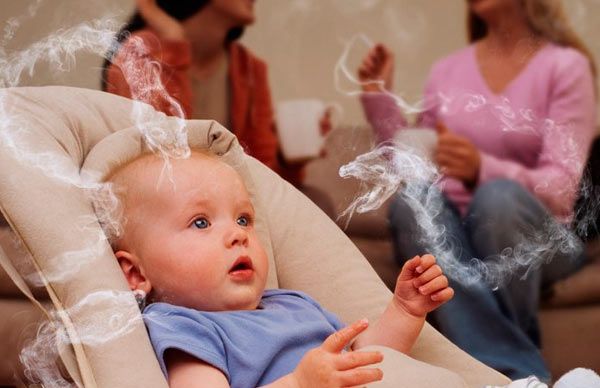New publications
Parents' smoking affects their future children
Last reviewed: 02.07.2025

All iLive content is medically reviewed or fact checked to ensure as much factual accuracy as possible.
We have strict sourcing guidelines and only link to reputable media sites, academic research institutions and, whenever possible, medically peer reviewed studies. Note that the numbers in parentheses ([1], [2], etc.) are clickable links to these studies.
If you feel that any of our content is inaccurate, out-of-date, or otherwise questionable, please select it and press Ctrl + Enter.

Scientists from the American University of Massachusetts have discovered that smoking by parents, and especially by fathers, has a negative impact not only on their own health, but also on their future children.
The researchers came to this conclusion after conducting an experiment on rodents, since metabolic processes in mice have much in common with human metabolism.
The experiment consisted of constantly exposing mice to nicotine; in addition, scientists observed the health characteristics of their offspring.
During the study, it was discovered that the mice quickly recognized toxic substances and eliminated them just as quickly, reacting to any polluting factors of the external environment and atmosphere, and demonstrating a more indicative resistance to adverse health effects. Specialists explained this phenomenon by the development of habituation and adaptation of the body to chemical toxic substances, as well as the acceleration of metabolic processes in the liver due to the expression of individual genes.
Moreover, a genetically established link was proven: such resistance of a person is passed on to his children. At first, scientists accepted this information as good news for smokers – after all, their children become more adapted to unfavorable conditions of existence. However, the other side of the coin was soon revealed.
Further experiments only confirmed the experts' fears: offspring born to couples who were exposed to nicotine inherited hypertrophied tolerance of the body to all kinds of chemicals, including medications.
What can the information obtained indicate? Children whose fathers are heavy smokers may suffer from a weakened susceptibility to certain types of medications, which at a certain point may create considerable problems in the treatment of the child.
One of the direct participants in the study, Doctor of Science, Professor of Biological Chemistry and Molecular Pharmacology Oliver Rando, pointed out that the “programming” of children of smokers for toxic resistance should still be studied, as it raises a host of additional questions:
- Does this mean that chemotherapy will be ineffective for such children?
- Will the children of smokers change their attitude towards smoking – will their craving for nicotine become weaker or stronger?
It may turn out that at a certain point, when the child needs to undergo a course of treatment, for example, with antibiotics, they simply will not work, and the treatment will not bring the desired result. Of course, this can create a mortal danger for a person, since there will simply be nothing to treat the infectious disease with - the body will not respond positively to medications.

According to the press service of the Medical College of the University of Massachusetts, research on this topic will be continued. However, it is already becoming clear that many parents should think about the health of their future children in advance.

 [
[